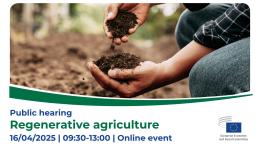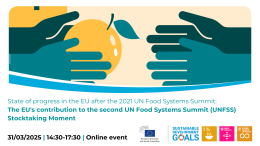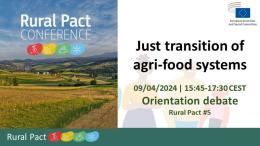European Economic
and Social Committee
Food sustainability
Food is at the centre of our lives and an integral part of the European culture. However, the food we eat, the ways we produce it and the amounts wasted have major impacts on human health, natural resources and society as a whole:
- Citizens –and children in particular– are increasingly suffering from overweight and obesity due to unhealthy diets.
- Farmers and workers do not get a fair price for their produce.
- One third of food is lost or wasted across the food chain.
- The environment is paying the bill with the dramatic effects of food production and consumption on climate change, loss of biodiversity, air and water pollution, soil degradation, etc.
The COVID-19 crisis is a wake-up call for change. It has demonstrated that getting food "from farm to fork" cannot be taken for granted and has shown the interconnectedness of actors and activities throughout the food system. Fair, resource efficient, inclusive and sustainable supply chains in the whole agriculture and food sector are needed more than ever to deliver equally for citizens, farmers, workers and business.
The EESC has been for years at the forefront of calling for a sustainable and comprehensive food policy. Such an integrated and systemic approach is essential to tackle the multiple and interconnected challenges affecting food systems; to deliver economic, environmental and socio-cultural sustainability; to ensure integration and coherence across policy areas (such as agriculture, environment, health, education, trade, economy, technology, etc.); and to promote cooperation across levels of governance.









